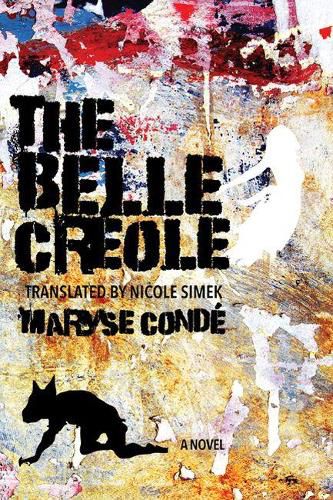Readings Newsletter
Become a Readings Member to make your shopping experience even easier.
Sign in or sign up for free!
You’re not far away from qualifying for FREE standard shipping within Australia
You’ve qualified for FREE standard shipping within Australia
The cart is loading…






This title is printed to order. This book may have been self-published. If so, we cannot guarantee the quality of the content. In the main most books will have gone through the editing process however some may not. We therefore suggest that you be aware of this before ordering this book. If in doubt check either the author or publisher’s details as we are unable to accept any returns unless they are faulty. Please contact us if you have any questions.
Possessing one of the most vital voices in international letters, Maryse Conde added to an already acclaimed career the New Academy Prize in Literature in 2018. The fourteenth novel by this celebrated author revolves around an enigmatic crime and the young man at its center. Dieudonne Sabrina, a gardener, aged twenty-two and black, is accused of murdering his employer–and lover–Loraine, a wealthy white woman descended from plantation owners. His only refuge is a sailboat, La Belle Creole, a relic of times gone by. Conde follows Dieudonne’s desperate wanderings through the city of Port-Mahault the night of his acquittal, the narrative unfolding through a series of multivoiced flashbacks set against a forbidding backdrop of social disintegration and tumultuous labor strikes in turn-of-the-twenty-first-century Guadeloupe. Twenty-four hours later, Dieudonne’s fate becomes suggestively intertwined with that of the French island itself, though the future of both remains uncertain in the end.
Echoes of Faulkner and Lawrence, and even Shakespeare’s Othello, resonate in this tale, yet the drama’s uniquely modern dynamics set it apart from any model in its exploration of love and hate, politics and stereotype, and the attempt to find connections with others across barriers. Through her vividly and intimately drawn characters, Conde paints a rich portrait of a contemporary society grappling with the heritage of slavery, racism, and colonization.
$9.00 standard shipping within Australia
FREE standard shipping within Australia for orders over $100.00
Express & International shipping calculated at checkout
This title is printed to order. This book may have been self-published. If so, we cannot guarantee the quality of the content. In the main most books will have gone through the editing process however some may not. We therefore suggest that you be aware of this before ordering this book. If in doubt check either the author or publisher’s details as we are unable to accept any returns unless they are faulty. Please contact us if you have any questions.
Possessing one of the most vital voices in international letters, Maryse Conde added to an already acclaimed career the New Academy Prize in Literature in 2018. The fourteenth novel by this celebrated author revolves around an enigmatic crime and the young man at its center. Dieudonne Sabrina, a gardener, aged twenty-two and black, is accused of murdering his employer–and lover–Loraine, a wealthy white woman descended from plantation owners. His only refuge is a sailboat, La Belle Creole, a relic of times gone by. Conde follows Dieudonne’s desperate wanderings through the city of Port-Mahault the night of his acquittal, the narrative unfolding through a series of multivoiced flashbacks set against a forbidding backdrop of social disintegration and tumultuous labor strikes in turn-of-the-twenty-first-century Guadeloupe. Twenty-four hours later, Dieudonne’s fate becomes suggestively intertwined with that of the French island itself, though the future of both remains uncertain in the end.
Echoes of Faulkner and Lawrence, and even Shakespeare’s Othello, resonate in this tale, yet the drama’s uniquely modern dynamics set it apart from any model in its exploration of love and hate, politics and stereotype, and the attempt to find connections with others across barriers. Through her vividly and intimately drawn characters, Conde paints a rich portrait of a contemporary society grappling with the heritage of slavery, racism, and colonization.